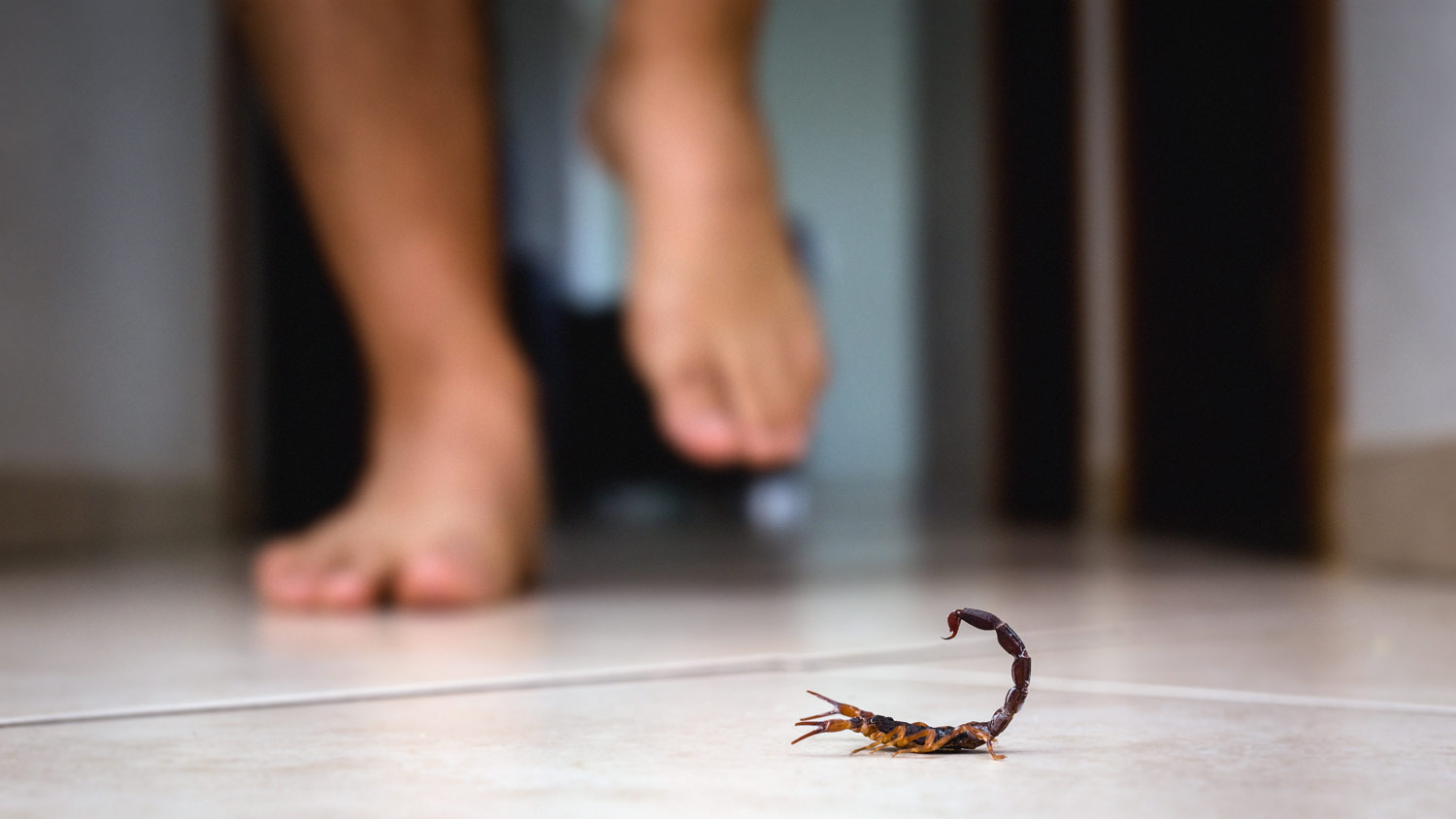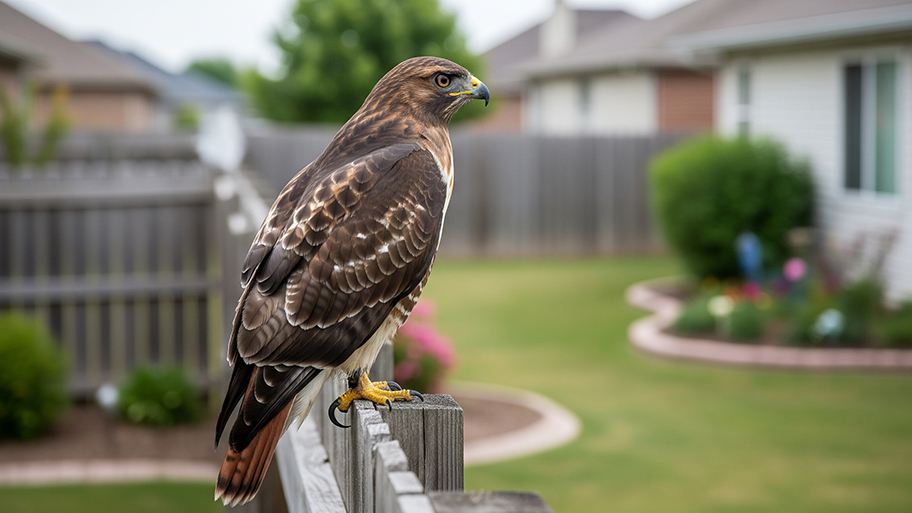
The cost to remove a groundhog can vary depending on where you live and whether you do it yourself or hire a professional. We’ll help you figure out the true cost of groundhog removal, along with strategies for humane trapping and release.
Scorpions hanging out in AC vents is anything but cool


Scorpions are good climbers that can fit in small gaps.
They enter your home through cracks or vents.
They usually stay in the walls but can exit through AC vents.
To prevent scorpions, eliminate gaps and cracks inside your home.
Scorpions can be found in much of the U.S. and are particularly common in the desert areas of the Southwest, such as California, Nevada, Arizona, New Mexico, and Texas. These potentially dangerous creatures can climb walls and squeeze through spaces as small as a credit card. That likely makes you ask whether scorpions can come through air vents and into your home. Unfortunately, one of the most common places scorpions enter homes is through air conditioning vent covers. Here’s what you need to know.
Scorpions are good climbers; they can climb the stucco outside your home to the roof. They are also very flat and can squeeze into spaces as thin as 1/16th of an inch. That flat shape allows them to enter through home ventilation areas such as:
Attic vents
Dryer vents
Bathroom fan vents
Gas vents
Range vents
Plumbing vents
Ridge, soffit, box, off ridge, cupola, or turbine vents in the roof
Weep holes at the bottom of stucco
The good news is that most of these are closed systems, meaning a scorpion that finds its way through one of these entry points won’t be able to enter your living areas. The bad news is that not all of those systems are closed, such as fan vents, and if scorpions get into your walls, they can get out anywhere they find gaps in the walls.
Some of the most common passageways for scorpions are through air conditioning vents. The pests are attracted to the cool water that condenses outside AC ducts. They often find gaps where the duct connects to the vent cover. From there, they can easily climb into your home’s interior.
A scorpion has made its way inside—now what? Getting rid of scorpions can be dangerous, so we recommend calling a wildlife removal pro if you don’t know what type of scorpion you’re dealing with. Arizona bark scorpions are the most venomous species in the U.S., so don’t get near one if you can help it.
Remove sources of food, water, and shelter that might be attracting critters. You can purchase chemical sprays or Diatomaceous earth to kill scorpions, and they hate the smell of lavender, cinnamon, peppermint, and cedar, so get those essential oils ready.
Wildlife control professionals will likely charge an inspection fee of around $150 and then $150 to $300 per visit for removing scorpions. The pest control costs depend on the type and number of scorpions present as well as the size of your property.

You can’t seal up your home completely. Screening some external vents can cause problems when the screens fail to ventilate and trap in dust, dryer lint, heat, moisture, or dangerous gases. Rather than trying to keep scorpions out altogether, focus on ways to keep them out of your living space.
Consult a local animal removal expert who can help identify the entry points scorpions will most likely use to get into your home. In the meantime, follow these steps to close off your space to scorpions.
All the sealing in the world won’t help if scorpions can just walk through your front door. Opening windows is fine if you have a tight-fitting screen with no holes. Install a door sweep under your door to prevent these pests from entering through the crack below.
The best way to prevent scorpions from sneaking out of your fan and air condition vents is by screening the vent covers.
Remove the vent cover
Cut screen material to fit over the gaps
Secure the screen with duct tape
Reinstall the vent cover
Ensure the vent cover fits tightly to the ceiling or wall
Use caulking to seal any small gaps or cracks around your home. Pay special attention to sealing around doors, windows, and pipes coming through the walls. Be sure your light fixtures, electrical sockets, and switches are all fitted tightly against walls or ceilings and your baseboards are installed against the flooring.
I have allergies, so I booked a deep carpet cleaning to remove dust and pet dander. The air feels so much cleaner now, and I?ve noticed a big difference already. Fantastic service!
My wife and I just finished a whole home remodel with Modern Build Solutions and it turned out perfect!!! We did kitchen, bathroom, floors, and even added a new pantry closet for extra storage. We live in a condo with strict rules regarding insurance, work times, elevators, etc. and Modern...
Good. I have used them for several times for the past 12 years. Moreover, I would definitely use them again and recommend them to anyone.
My family has been a repeat customer of Lumberjack Tree Service since July 2013. The owner, Derek, always greets you with a smile and a firm handshake and works with you to provide you with quality service. Each time Derek or members of his team has come out, they’re polite and courteous –...
I text'd Paul yesterday to tell him I went with someone else to trim the tree because of the estimate he gave me. I told him what I paid to have the branches cut back. I also reminded him that he REMOVED A TREE AND STUMP at an investment property this past March for me for less than what he...
The two plumbers arrived around 4:30 PM. They had to see into my wall, so they did a small test cut on the ceiling. They still could not see the issue so they did have to remove a large portion of my dining room wall. They cut it out and luckily, found the leak. My husband didn't know it,...
The experience was awful. They showed up earlier than quoted they should have come between 9 and 9:30 but got there at 8:10 said they wanted to start earlier because of the heat. I caught one of the workers sitting down when they were suppose to be working. I called the office to complain...
I was very impressed with the quality of service. I received an email confirmation with firm price quote off my conversation with their national office. When I arrived at the OKC location, they had the paperwork, they took my car in early, and it took less than 1 hour. It was estimated to...
From average costs to expert advice, get all the answers you need to get your job done.

The cost to remove a groundhog can vary depending on where you live and whether you do it yourself or hire a professional. We’ll help you figure out the true cost of groundhog removal, along with strategies for humane trapping and release.

When calculating wildlife removal costs, you’ll need to consider the type, size, and amount of animals. Our guide will show you the wildlife removal cost.

If iguanas are plaguing your home and destroying your property, proper removal is key. Learn the costs to expect from an iguana removal service.

Homeowners should know the key differences between badgers vs. raccoons. Here are their unique traits and impacts on humans.

Hawks are expert overhead hunters. To protect your pets and the little birds visiting your backyard, learn how to keep hawks away with these humane strategies.

Find out how to keep unwanted animals out of your yard with these easy tips and tricks so you can enjoy your property in peace.